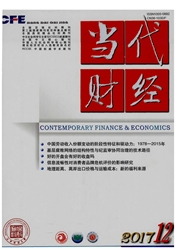

 中文摘要:
中文摘要:
利用A股国有上市公司2001-2013年的经验数据,研究了国有企业薪酬管制对会计稳健性的影响,以及薪酬管制影响会计稳健性在地方国企和央企之间的差异性。研究发现,国有企业的高管薪酬管制的确能够提高企业的会计稳健性,薪酬管制降低了高管追求会计业绩的冲动;与地方国企高管相比,央企高管的薪酬管制更能有助于企业会计稳健性的提高;高管持股对企业会计稳健性没有显著性影响;2007年新企业会计准则的采用,降低了企业会计稳健性;公司增长和会计稳健性负相关。此外,研究发现,地方国企的会计稳健性程度比央企更高;地方国企高管薪酬水平要比央企低。
 英文摘要:
英文摘要:
By making use of the empirical data of A-share state- owned listed companies from2001 to 2013, this paper studies the influence of compensation regulation on accounting conservatism in state-owned enterprises and the differences of such influence between local state-owned enterprises and the enterprises run by the central government. The results indicate that the top managers' compensation regulation of SOEs can really improve the accounting conservatism; compensation regulation can reduce the impulse of the top managers to seek better accounting performance. Compared with the top managers in local SOEs, the compensation regulation for the enterprises run by the central government is more able to help improving accounting conservatism. The shareholdings of the top managers do not affect corporate accounting conservatism. The adoption of the new corporate accounting standards from 2007 has lowered the corporate accounting conservatism; the corporate growth is negatively correlated with accounting conservatism. In addition, the study finds that the level of accounting conservatism in local SOEs is higher than that in the enterprises run by the central government; the compensation level of the top managers in local SOEs is lower than that in the enterprises run by the central government.
 同期刊论文项目
同期刊论文项目
 同项目期刊论文
同项目期刊论文
 期刊信息
期刊信息
